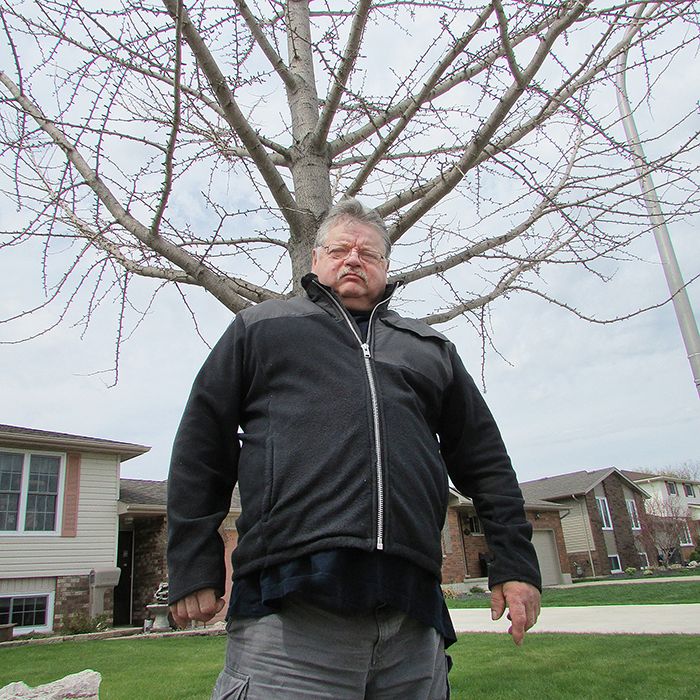
Something’s rotten on Viscount Road.
Well, it stinks in the fall, to be exact.
A Viscount Road couple is at odds with the municipality over a ginkgo tree that sits on municipal property in front of their home. The couple wants the tree removed, while municipal officials see no reason to do so.
Don and Maureen DeBaene said the tree is a female ginkgo tree, which drops small plum-like fruit each fall that ultimately smell horrible.
How horrible?
“It smells like dog crap,” said Randall Van Wagner, environmental project co-ordinator with the Greening Partnership between the municipality and the local conservation authority.
Don DeBaene takes it one step farther.
“It smells like a cross between dog poop and vomit,” he said of the tree that was planted by a previous homeowner.
LEADWAVE Technologies from Chatham Voice
on Vimeo.
Van Wagner, who operates from the Lower Thames Valley Conservation Authority offices, said when the fruit is left on the ground to rot, it produces butyric acid, which is also present in human vomit, and is what gives vomit most of its nasty stench.
DeBaene wants the tree gone. He sees it as a health and safety issue. The municipality isn’t so quick to stop by with its chainsaws, however.
Dennis Chepeka, manager of Public Works North for the municipality, said in an e-mail that he believes the tree doesn’t pose any safety risk.
DeBaene said the fruit is toxic, as it contains small amounts of urushiol, the same chemical that is in poison ivy. He fears if kids walking by his house pick up and play with the fruit, they could break out in a rash.
“But the city’s saying it’s a healthy tree and they don’t want it cut down. They don’t see the problem,” DeBaene said. “Kids walk by every day.”
Chepeka said the outer husk of the fruit has the potential to be toxic, but only if eaten in excess.
“The same can be said for many other plants in the immediate environment,” he said in his e-mail. “Any type of fruit, which has fallen to the ground and allowed to rot, will produce an unpleasant odour, including peaches, apples and walnuts. The municipality does not remove these species of trees as a result.”
Furthermore, the lone sidewalk on Viscount is on the other side of the street, so most pedestrian traffic doesn’t even go past the tree, Chepeka explained in his e-mail.
Van Wagner said there is precedent for a city to remove healthy female ginkgo trees.
“New York City had this problem and they cut down some trees,” he said. “A lot of people recommend just planting males, as they don’t drop seeds.”
Van Wagner said the ginkgo tree is native to Asia and is the only tree to survive the atomic bomb dropped on Hiroshima – it’s a hardy tree, to say the least.
But it’s not native.
“This is another example of why you should plant something native. We recommend in an urban setting something that’s easy and clean, like a tulip tree,” he said.
It appears the DeBaenes will have continue to try to rake up the tree’s fruit again this fall before it rots and smells up the neighbourhood.






